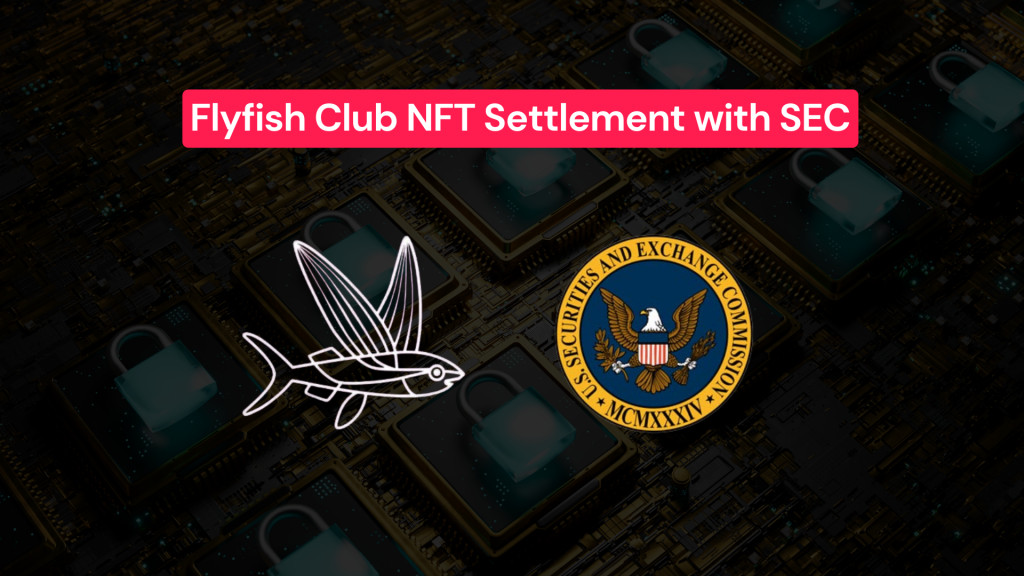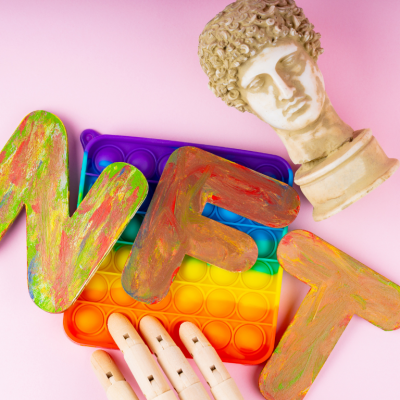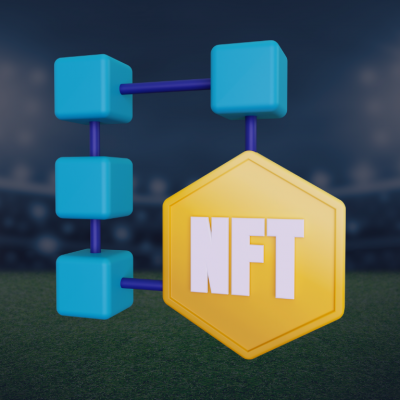
In a significant regulatory action, Flyfish Club—an exclusive NFT-backed dining experience—has reached a settlement with the U.S. Securities and Exchange Commission (SEC), signaling an important shift in how NFTs may be classified under securities laws. The Flyfish Club’s unique business model, which ties private restaurant membership to non-fungible tokens (NFTs), caught the attention of the SEC, particularly due to concerns around the speculative trading of its NFTs on secondary markets.
As NFTs continue to grow in popularity across industries, including art, gaming, and hospitality, the Flyfish Club settlement serves as a precedent for how similar projects may be treated under U.S. securities regulations moving forward. This article will provide an in-depth look at the Flyfish Club settlement, how the SEC is approaching NFT regulation, and what this means for future NFT projects.
What is Flyfish Club?
The Flyfish Club (FFC), launched in 2021 by restaurateur David Rodolitz and entrepreneur Gary Vaynerchuk, is the world’s first private dining club where membership is sold as an NFT. Flyfish NFTs grant holders access to an exclusive, high-end seafood restaurant in New York City, as well as to unique culinary experiences. Membership is structured in two tiers:
- Flyfish Regular: General access to the Flyfish dining experience.
- Flyfish Omakase: Premium membership that includes access to an ultra-exclusive Omakase room for high-end sushi dining.
The concept behind Flyfish Club was innovative, combining the blockchain’s decentralized ownership model with physical, real-world perks. The NFTs, minted on the Ethereum blockchain, provide verifiable proof of ownership, and they can be resold or traded on secondary markets like OpenSea.
Upon the project’s initial release in early 2022, Flyfish NFTs quickly sold out, with the floor price for the tokens climbing to as high as 4 ETH (roughly $7,000 USD at that time). The speculative trading around these NFTs—where prices fluctuated based on perceived future value—raised questions about whether these tokens should be classified as securities under U.S. law, specifically under the Howey Test.
SEC’s Scrutiny of NFTs and the Howey Test
The Howey Test, established by the U.S. Supreme Court in 1946, determines whether a financial arrangement qualifies as an “investment contract” (and thus a security). For a financial transaction to be classified as a security under the Howey Test, it must involve:
- An investment of money
- In a common enterprise
- With an expectation of profits
- Derived from the efforts of others
Flyfish NFTs raised concerns with the SEC due to their potential to generate profits through speculative trading on secondary markets. Purchasers of Flyfish NFTs could have been motivated by the idea that the tokens’ value would increase, thanks to the exclusivity of the membership and demand for the high-end culinary experience. This speculative element—where the value is driven largely by the creators’ efforts—appears to meet the Howey Test criteria, making Flyfish NFTs potentially subject to U.S. securities laws.
Flyfish Club’s Settlement with the SEC
After a thorough investigation by the SEC, Flyfish Club reached a settlement. According to the terms of the settlement:
- Flyfish Club agreed to pay a fine of $750,000.
- The settlement included a commitment to revise the way its NFT offering complies with securities laws.
- Flyfish agreed to ensure that its tokens would not be marketed or sold as speculative investments, and secondary market sales would be subject to tighter controls to prevent speculative trading.
This $750,000 fine represents one of the first major penalties levied against an NFT project by the SEC, signaling the regulatory body’s increasing focus on how NFTs are used and traded. While Flyfish Club will continue to operate its restaurant and NFT membership model, the settlement requires the company to establish more transparent legal structures around the token sales and enforce clearer disclaimers about their potential value.
Implications for the NFT Industry
The Flyfish Club settlement has wide-reaching implications for NFT projects, particularly those that blur the line between utility-based tokens and securities. The case sets a precedent that may affect the way NFTs are issued and traded, especially when there is potential for profit from secondary sales. Here are some key takeaways:
1. Regulators are Increasing Scrutiny on NFTs
The Flyfish settlement demonstrates that the SEC is intensifying its focus on the NFT space. In 2022, the NFT market generated over $24.9 billion in sales volume, a dramatic increase from just $94 million in 2020. This rapid growth has drawn the attention of regulators, who are concerned that some NFT offerings may resemble unregistered securities.
NFT projects involving tokenized access to real-world assets or experiences—such as Flyfish Club—are particularly susceptible to regulatory intervention if there is an expectation of profit tied to the resale of the tokens. With the SEC closely watching, NFT creators need to be especially cautious about how they promote and structure their tokens.
2. Importance of Legal Compliance for NFT Projects
This case highlights the necessity for NFT creators to thoroughly vet their projects for potential securities law implications. Legal compliance should be a priority from the outset, especially if the tokens are intended to provide benefits beyond digital ownership.
- Consulting with Legal Experts: NFT issuers should consult with securities lawyers before launching their projects to ensure they comply with relevant regulations.
- Clear Disclaimers: Projects must make it clear that the NFTs are not intended as investment vehicles and ensure that buyers are aware of the risks associated with speculative trading.
3. The Future of Tokenized Memberships
Flyfish Club’s model of tokenized memberships has sparked interest in how NFTs can be used to grant access to real-world services and experiences. However, this case also reveals the challenges of operating such models under current securities regulations. Any tokenized membership model that involves potential price appreciation on secondary markets may need to be restructured to avoid running afoul of securities laws.
As NFTs continue to evolve, creators must walk a fine line between offering utility and avoiding the pitfalls of speculative trading. Tokenized memberships like Flyfish will likely need to place more emphasis on utility rather than investment potential to stay compliant.
4. Secondary Markets Pose Regulatory Risks
A key element of NFTs is their ability to be traded on secondary markets. Flyfish NFTs, for example, were actively bought and sold on platforms like OpenSea, often at substantial markups. This liquidity is attractive to both creators and investors, but it also introduces regulatory complications.
The Flyfish Club settlement may prompt other NFT projects to rethink how they approach secondary markets. In some cases, limiting or monitoring secondary sales may be necessary to prevent speculative trading that could invite regulatory scrutiny.
What’s Next for Flyfish and the NFT Industry?
The Flyfish Club’s settlement with the SEC is a landmark case in the NFT space. The $750,000 fine serves as a wake-up call for projects that operate at the intersection of digital assets and real-world services. Moving forward, NFT projects will need to balance innovation with compliance, ensuring that their token structures do not unintentionally violate securities laws.
For Flyfish Club, the settlement allows the project to continue operating while making necessary adjustments to its legal framework. However, the broader NFT industry will now need to pay close attention to how the SEC continues to regulate this emerging sector.
As NFTs continue to disrupt industries from entertainment to hospitality, regulatory oversight will only increase. Projects that tokenize physical or real-world assets should prioritize legal compliance to avoid future conflicts with regulators. The Flyfish Club case offers a roadmap for navigating the regulatory challenges in the fast-evolving world of NFTs, showing that innovation must go hand-in-hand with careful adherence to the law.





